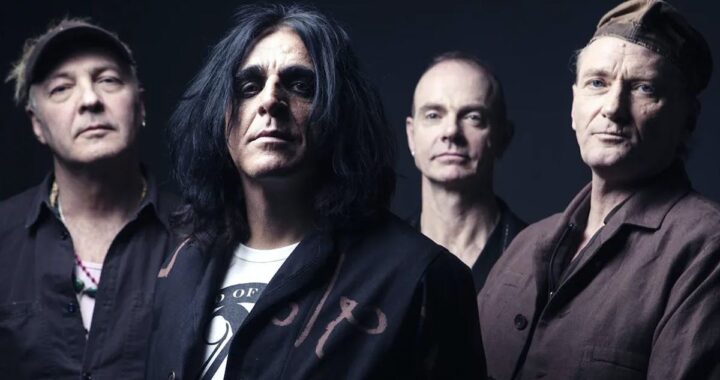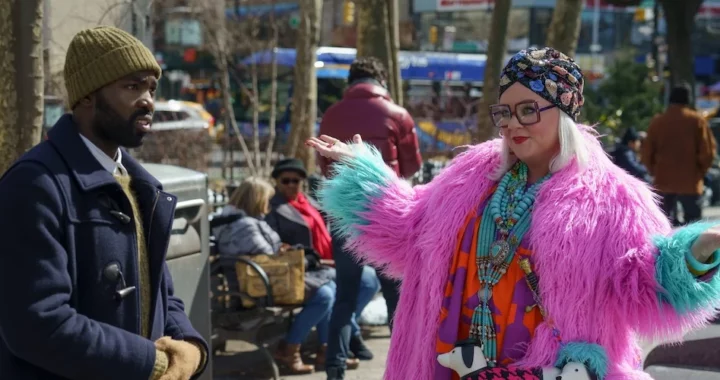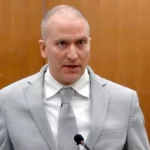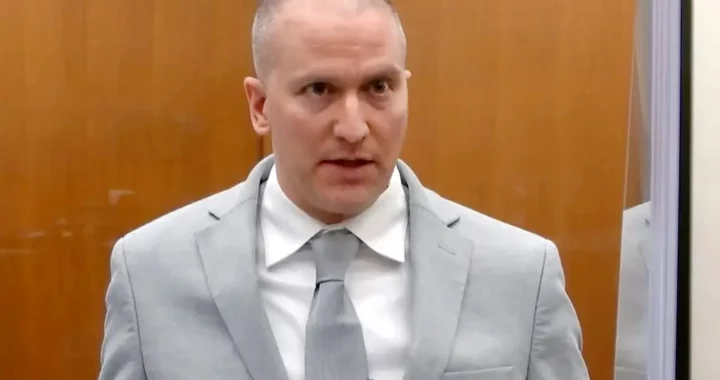“Savior Complex” HBO Review

Critically Examining ‘Savior Complex’: A Deep Dive into HBO’s Provocative Documentary
Expertly crafted and deeply maddening, HBO’s three-part documentary, “Savior Complex,” delves into the intertwined narratives of Renee Bach, No White Saviors, and Serving His Children. This compelling work serves as a captivating exploration of colonialism, philanthropy, outrage, societal divisions, racial dynamics, privilege, and youthful idealism. However, what sets it apart as a thought-provoking piece is its steadfast refusal to offer simplistic solutions.
For those entering with the preconceived notion that Bach is a monstrous figure akin to Hitler, “Savior Complex” presents enough material to substantiate such a viewpoint. Conversely, those who view her as a victim caught in the crossfire of activist fervor masked as justice are likely to maintain their stance. “Savior Complex” meticulously dissects this shocking case, addressing viewer queries as they arise by seamlessly shifting between Bach’s narrative and the perspectives of other individuals involved in this intricate tale. The documentary is interspersed with incisive and illuminating footage, unrelenting in its quest to hold Bach accountable, countering her assertions with heartrending eyewitness accounts. It serves as a stark reminder that, in this complex narrative, no one possesses the complete truth.
As a teenager, Renee Bach embarked on a missionary journey to Uganda, where she discovered her calling in Africa. Following her stint at an orphanage, she made the bold decision to establish her own charitable organization in the Jinja district. Here, she inaugurated a center to combat child malnutrition in a region perpetually grappling with nutritional and health challenges. She officially registered her nonprofit organization, Serving His Children, and assembled a team. In the ensuing narrative, there exist two undeniable truths, even amid divergent perspectives regarding motives and ethical or legal obligations:
- Bach undeniably saved the lives of children in the region, a fact attested to by some mothers.
- However, Bach ventured into performing medical procedures for which she lacked the requisite qualifications, candidly acknowledging that she often relied on intuition rather than professional expertise. Tragically, over a hundred Ugandan children perished as a result, and the actual toll is arguable, potentially much higher.
Upon her arrival at Serving His Children (SHC), Jackie Kramlich, an American registered nurse, was profoundly shocked by the dire conditions she encountered, which included a notable absence of educational resources and unsanitary surroundings. In gripping interview segments featured in “Savior Complex,” Kramlich vividly recounts her firsthand observations of Renee Bach seemingly administering medication injections and IV drips in a disturbingly casual manner. Additionally, fellow staff members level accusations against Bach, asserting that she disregarded the guidance and directives of qualified and educated Ugandan nurses and doctors.
The notion that Bach might have dismissed well-founded medical advice due to an instinctual hunch, potentially resulting in the loss of a child’s life, is morally indefensible. The disconcerting atmosphere prevailing at SHC prompted Kramlich to resign from her position. However, she believed that more decisive action was imperative when another employee reported worsening conditions. It was at this juncture that No White Saviors became involved in the unfolding narrative.
No White Saviors is an organization that draws a direct parallel between missions like Bach’s and the historical concept of colonialism. It highlights the intrusion of individuals who perceive themselves as superior to those they aim to assist, leveraging their position to exert control. Director Jackie Jesko unflinchingly explores the notion that Bach may have been a participant in this age-old and reprehensible strategy. Bach, as a powerful American white woman, is depicted as determined to impart her vision of God to the people of Uganda, regardless of the human toll.
Jesko approaches this theme with a subtlety that sets her apart from some other filmmakers who might have taken a more heavy-handed approach. Rather astutely, she allows Bach to inadvertently reveal her own blind spots, even featuring a scene where Bach struggles to pronounce “neocolonialism” – a moment almost too incredible to be true in the context of a documentary. Jesko also hints at a thought-provoking concept: the idea that young white women can more readily assume positions of authority within global missionary structures compared to male-dominated American institutions. Bach, in her narrative, appears to be oblivious to such underlying issues, staunchly defending herself solely on personal grounds and frustratingly disregarding the systemic concerns at play.
“Savior Complex” becomes even more intricate when one scrutinizes the imperfections within No White Saviors, an organization led by an outspoken figure who, ironically, is a white American woman. It’s somewhat perplexing that Kelsey Nielsen doesn’t seem to grasp the irony of her role as a white savior trying to save Ugandans from other white saviors. This irony is underscored by her lighthearted remarks on the matter. Particularly fascinating is how No White Saviors persists in advocating for the literal prosecution of Bach, even when the narrative doesn’t align precisely with their desired portrayal.
An illustrative instance is the interview with a mother who, instead of conforming to No White Saviors’ stance against Bach, views the missionary as a genuine life-saver. Inexplicably, NWS employs images of this mother’s child on social media to advance their cause, a deeply exploitative approach. Moreover, some of their social media campaigns cross the boundary into abusive territory, particularly when they involve Bach’s adopted daughter.
Even when examining the statistics in the Bach case, clarity can be elusive. Bach and her team, which included her mother, contend that 105 children perished at SHC, resulting in a mortality rate of 11%. During the same timeframe, a nearby children’s hospital registered a mortality rate of 14%. Nevertheless, these figures alone fail to provide a comprehensive perspective.
One must ponder whether a different approach, where Bach listened more than she acted, could have yielded a mortality rate below 10%. If so, wouldn’t those saved lives hold significant value? Conversely, if Bach had not been present, could that mortality rate have potentially doubled? These questions underscore the intricate nature of the situation, where numbers alone cannot fully encapsulate the complexity of the lives and decisions involved.
It all evolves into a battle of interpretation and perception, a contest inherently devoid of winners. Jesko and her team, with the esteemed Roger Ross Williams serving as an executive producer, eschew the typical clichés of true crime docuseries. Instead, they leave viewers of “Savior Complex” with a deeper understanding of the individuals involved, yet no clear-cut answers about the events or who, if anyone, bears responsibility.
Bach may argue that her expulsion from the country by No White Saviors resulted in lives lost because there was no one remaining to aid the malnourished children who couldn’t access a hospital. This argument likely holds some truth. However, it also underscores the peril inherent in Bach’s brand of righteous privilege, which is undeniably hazardous.
The series begins with a frequently repeated quote: “God doesn’t call the qualified; he qualifies the called.” Despite its nuanced approach, “Savior Complex” ultimately underscores the dangers associated with this belief. It’s a belief that can rationalize drastic, life-altering actions such as medical interventions under the pretext of being divinely called. The documentary series navigates a complex terrain of competing and intriguing ideas, making it a worthwhile watch, especially for any organization contemplating involvement in a foreign society.
I had the opportunity to review the entire series. “Savior Complex” makes its debut on HBO tonight, with two additional episodes scheduled for broadcast tomorrow. Furthermore, all episodes will be accessible on HBO Max this evening.
Film Credits

Director
By: M Z Hossain, Editor Sky Buzz Feed














